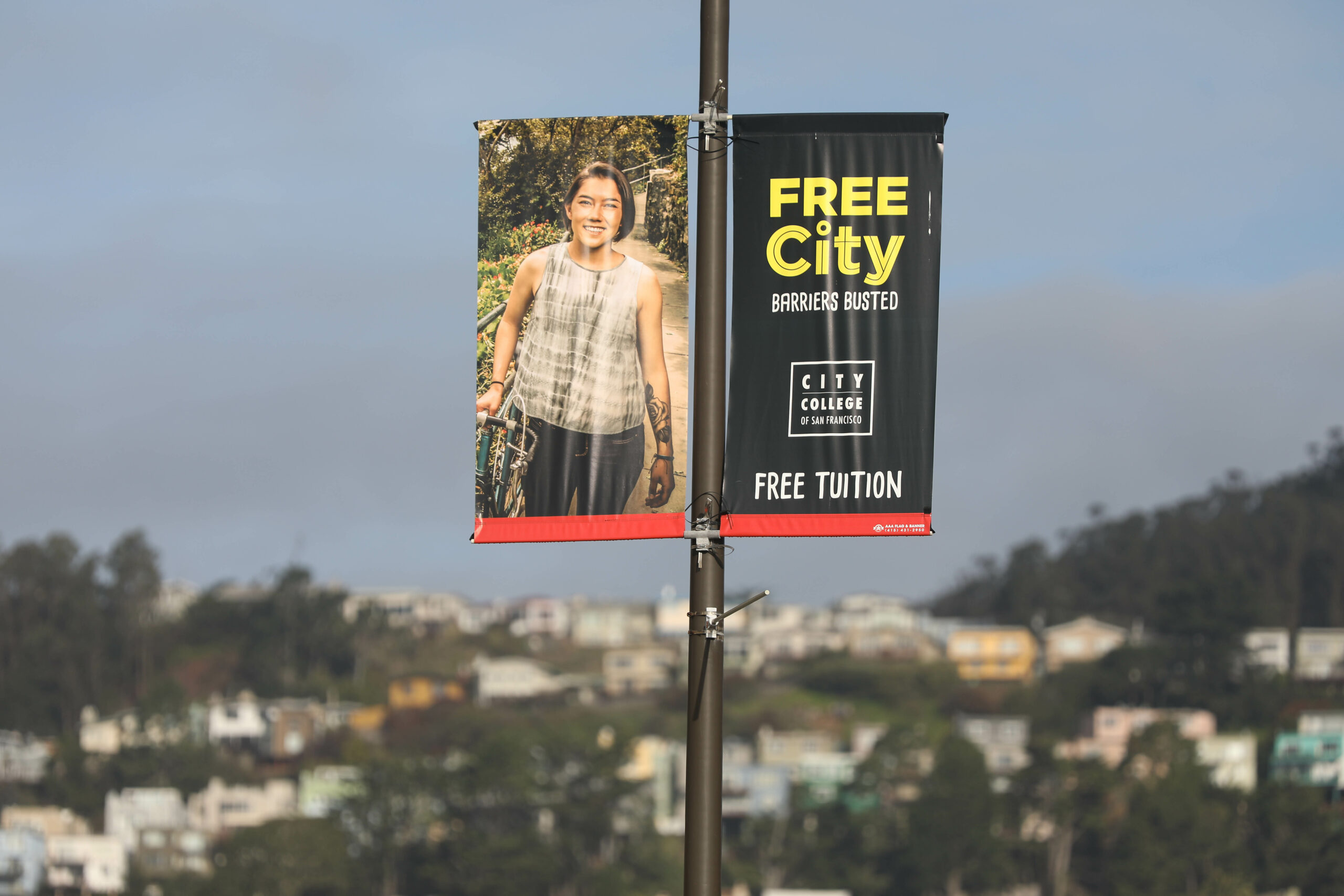San Francisco City College is asking taxpayers to bet on them once again, but not everyone is convinced.
This November, voters will decide on Proposition O, an additional parcel tax that would charge property owners differently depending on the size and use of their property and the owner’s age.
An analysis by the City Controller’s Office found that the measure could raise approximately $37 million annually for the community college if passed.
But it would cost the city $6 million to figure out how to collect the new tax and then cost around $3 million per year to continue running it. There could also be a delay in collecting the tax as an entire new system of collection would have to be set up.
As opposed to previous measures already passed by SF voters, such as Proposition A in 2020, which focused primarily on funding facility upgrades for City College, the money raised from Prop. O would go directly to tackling the college’s decadeslong enrollment crisis by paying for more classes, teachers and services that have been cut.
“We need to focus on getting Prop. O passed,” City College Trustee Alan Wong previously told The Standard. “That is how we make City College the community college that we want it to be.”
Mary Bravewoman is the president of the teachers’ union at City College, American Federation of Teachers (AFT) Local 2121. Before she became a math teacher there in 2006, she was a student at the college in the early ’90s and kept working there as a classified employee while obtaining her master’s degree.
According to her, AFT collaborated with administrators, staff and other unions in the district to craft the measure after Prop 15, a similar statewide measure, was narrowly defeated in 2020 despite having over 70% support from San Francisco voters.
“What we’re asking for is a small investment,” Bravewoman said. “We wrote [Prop. O] with the intention of getting the larger corporations to pay their fair share, not charge the average person more.”
How Much You Could Be Taxed
Should the tax pass, owners of single-family homes would pay $150 per year, while owners of the largest non-residential parcels (larger than 100,000 square feet) would pay $4,000 per year. Property owners over the age of 65 would be exempt from the tax if they use their property as their primary residence.
The tax would start in Jan. 2023 and expire after 20 years. It only needs a simple majority to pass.
Prop. O Pushback
While the value of having a free and thriving community college is not in question, some prominent voices have come out against Prop. O.
The San Francisco Bay Area Planning and Urban Research Association (SPUR) recommended that voters reject the new measure.
“City College is not on sound financial footing,” wrote SPUR in their analysis. “While recent changes may stabilize the financial picture, the past 10 years of City College’s history do not inspire confidence that additional funding will solve the underlying problems the college is facing.”
Mayor London Breed, Supervisors Aaron Peskin and Catherine Stefani, retired judge Quentin Kopp and the SF Apartment Association have also voiced their opposition to the measure.
“Enough is enough,” they wrote and signed together in a ballot argument form. “It’s time for the trustees and administrators to demonstrate that they’re capable of providing the leadership […] before coming to the voters for yet another bailout.”
Meanwhile, The San Francisco Chronicle said that the $37 million the measure would raise could also be enough to launch and run the Compassionate Alternative Response Team, which would respond to and intervene on homelessness issues that are at the forefront of residents’ minds.
“Are you comfortable spending as much on a complicated CCSF accounting structure as you are for an effort to improve the conditions on our streets?,” wrote The Chronicle. “This Editorial Board is not.”
Asked to respond to such critiques, Bravewoman said that framing the debate as an either/or proposition is a misreading of the current situation.
“The students of City College are the same people affected by the issues [opponents to Prop. O] say that they would rather prioritize,” Bravewoman said. “There is a whole class of homeless people who are invisible to a lot of San Franciscans. But a lot of them are our students who sleep in their cars or bounce between homes.
“So who is deserving of the help?” she added. “When they come to City College, at least we can connect them to other services such as child care and mental health care while they work on bettering their lives.”
A 2019 audit found that City College has been operating at a deficit of tens of millions of dollars for the past decade. During that time, the college also lost nearly 30,000 students, putting it in a state of perpetual crisis that saw it almost lose its accreditation status twice.
In addition to Prop. O, voters will also decide on the fate of four seats on the City College Board of Trustees that are up for grabs.
